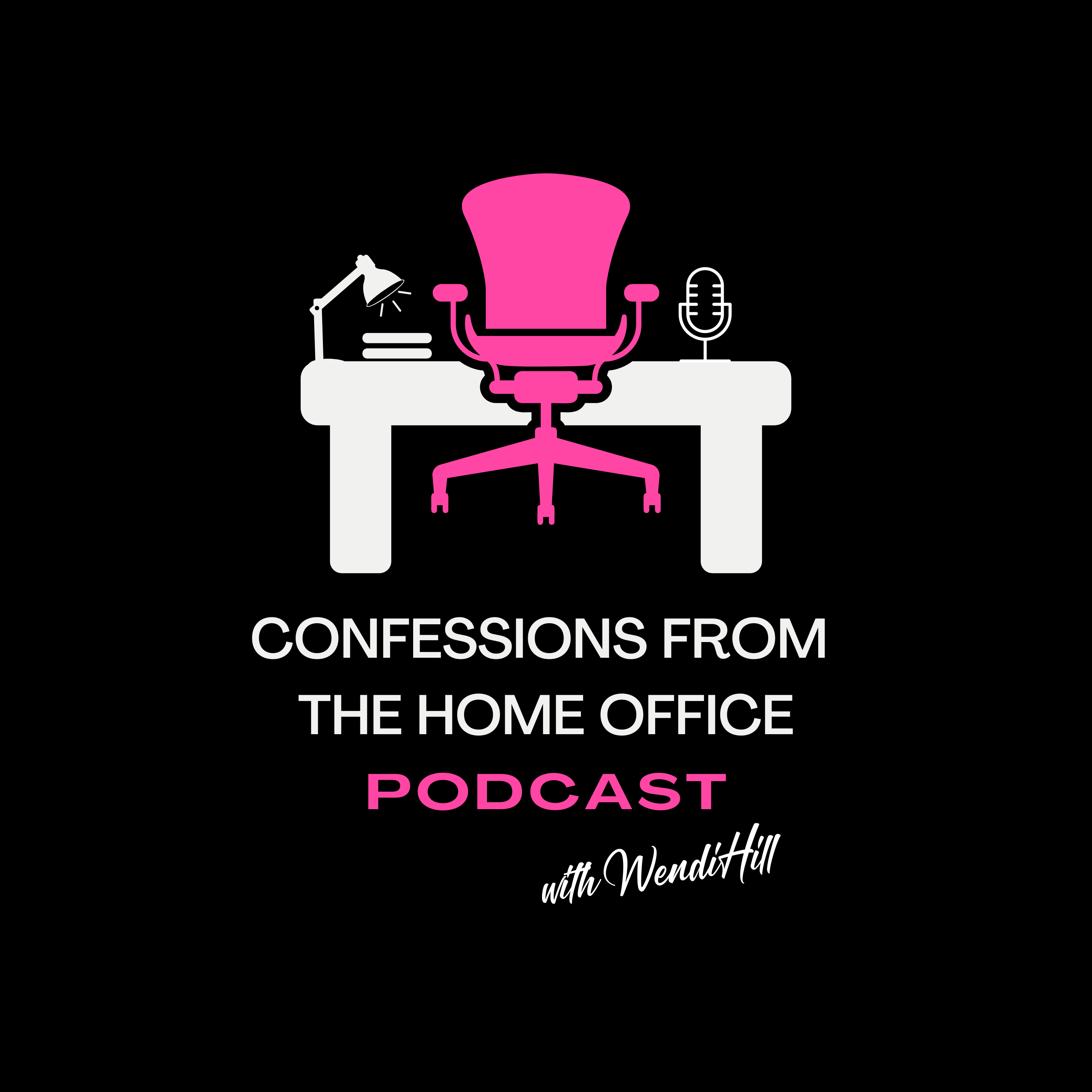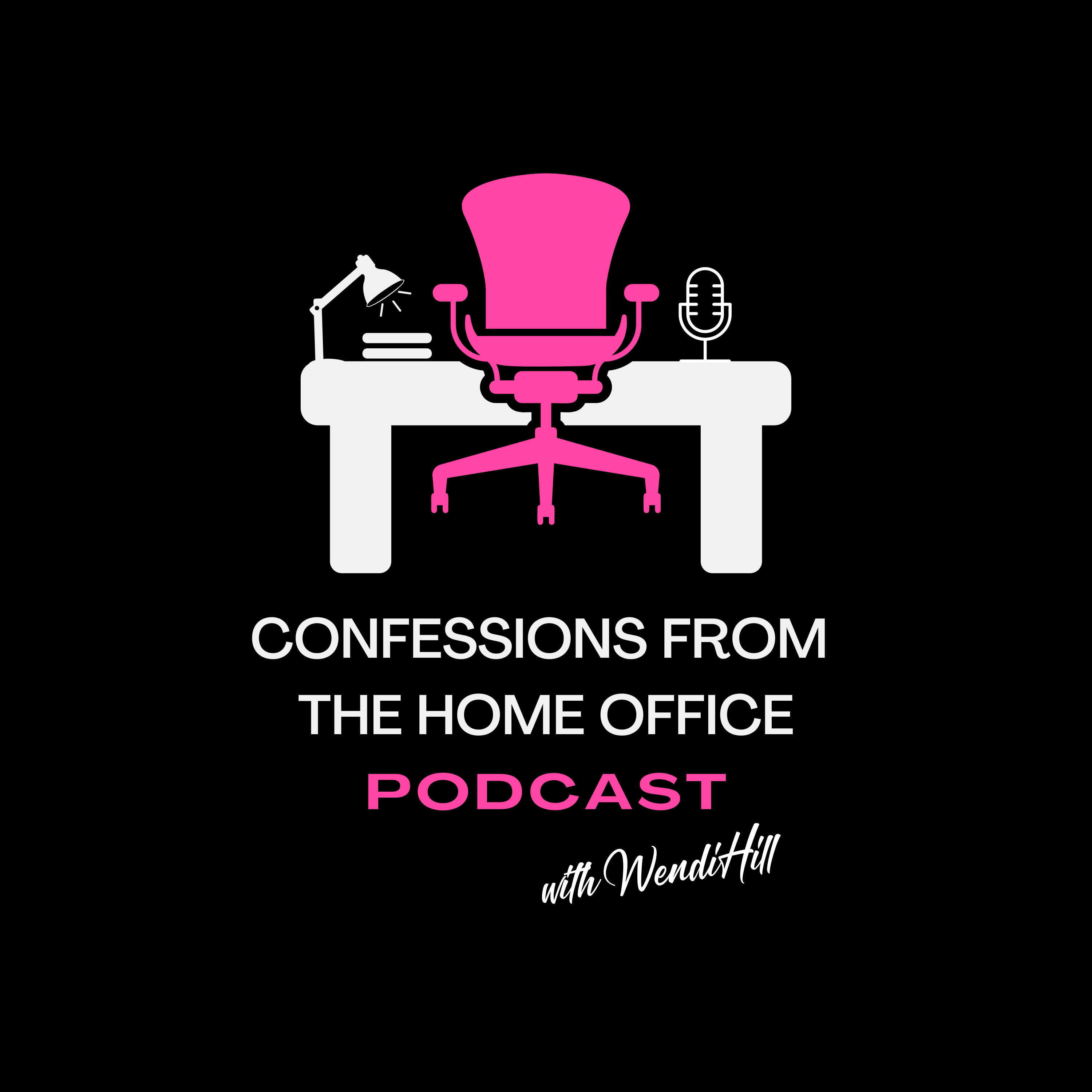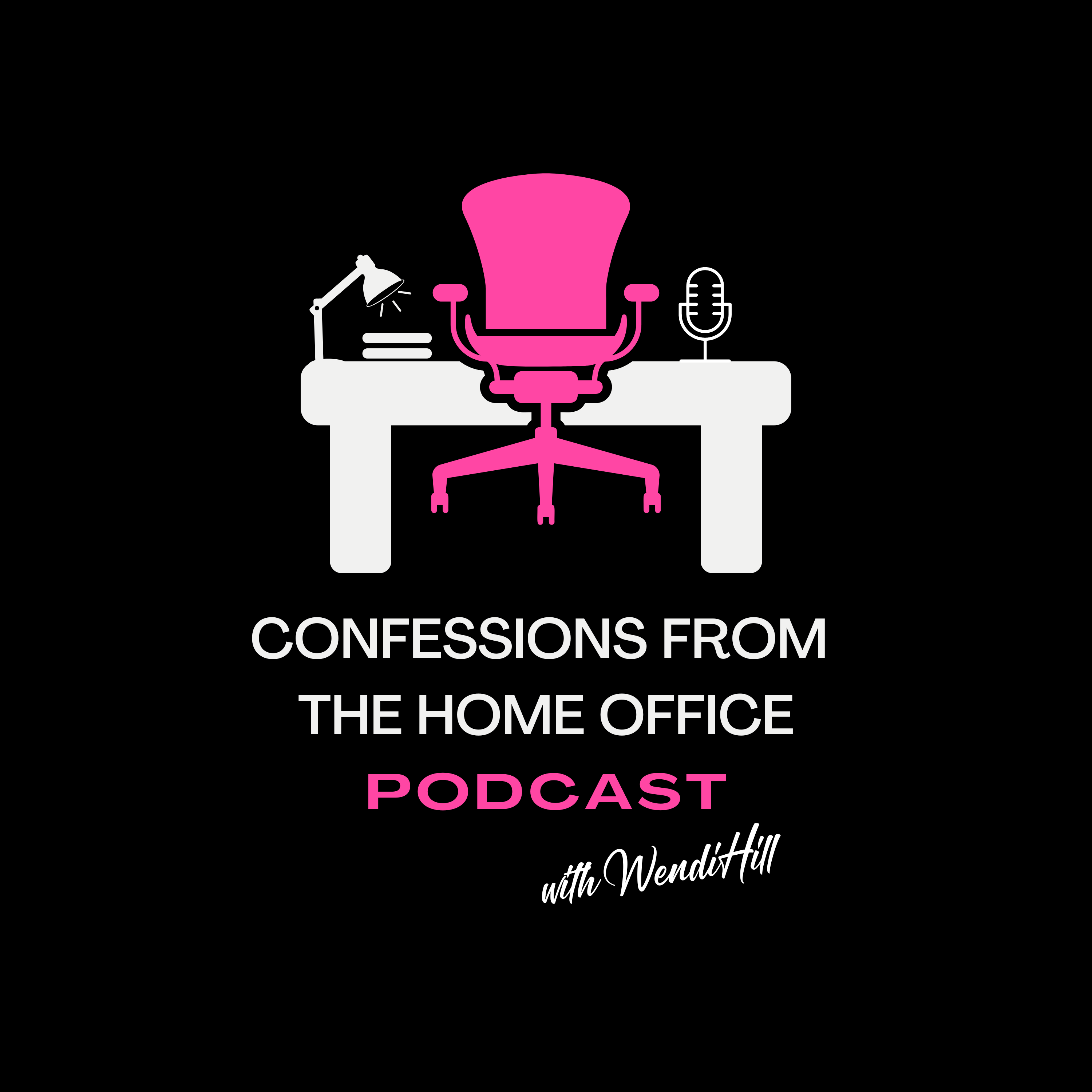Episode Transcript
[00:00:00] Foreign Hi there and welcome back to Confessions in the Home Office. I'm your host, Wendy Hill, and today we're talking about one of my favorite topics, customer experience and retention.
[00:00:16] So here's the truth. It's easy to get caught up in chasing new leads, getting new followers, and closing all kinds of new sales. I mean, that's kind of the high that business owners get. But the real magic and the real revenue often comes from the people who are already working with you. Think about retention, loyalty, long term relationships, and that's where sustainable growth happens.
[00:00:40] So early in my business, I thought growth meant constantly finding new clients. But over the years, I realized that my longest term clients, some of whom have been with me 7, 8, 12 years, are the ones who built my business.
[00:00:53] They stayed because of the experience, not just because of the results.
[00:00:58] So today I want to answer five questions about customer experience and retention that I hear being asked repeatedly. I hear it on other podcasts, I see people post blog posts about it, and these are even the ones that come up in consulting sessions and even over cocktails with other marketing consultants.
[00:01:17] So question number one is what's more important? Getting new customers or keeping the ones you already have? This is the million dollar question, and my answer is always keeping the ones you already have. So acquiring, acquiring a new customer is anywhere from five to seven times more expensive than keeping an existing one. Just think about all the emails, the phone calls, the meetings, the proposals that you're writing, the back and forth, the follow up calls. That's a lot. And even maybe ad dollars you've put in trying to acquire leads. But beyond the numbers, I want you to think about the relationship equity. A customer who stays with you, knows your brand, trusts you, knows your process, and is more likely to buy again and tell other people. They know, they feel comfortable with you and you're an important part of their business. And when they stay, that is a lot less expensive than going out and acquiring a new customer. So I work with a law firm that has never run any type of paid ad campaign, not one.
[00:02:19] They grow almost entirely from referrals because they focus a lot on the client experience and explain how else they can help them.
[00:02:26] So calls get returned, cases get explained, cases get handled, and clients feel cared for. That level of trust builds loyalty that money just can't buy. So yes, new customers matter, but if you put half as much energy into retention as you do into acquisition, you'll see a much bigger return in the long run.
[00:02:47] And we know sales is exhausting, unless you're just A huge extrovert.
[00:02:52] So question number two.
[00:02:54] How did you create a customer experience that people want to talk about?
[00:02:58] Well, we live in a world where people share everything. What they ordered for dinner, their workouts, their vacations, the awards that their kids get at school.
[00:03:06] If you can create an experience worth sharing, you've got free marketing. But here's the thing. It doesn't have to be flashy.
[00:03:13] Think about small touches that you do during the customer experience. Small touches go a long way.
[00:03:19] Think about a Southern restaurant that brings biscuits or cornbread to the table before you order.
[00:03:24] It costs them very little, but you remember it, you talk about it, and it happens every time you go.
[00:03:31] And I once worked with a creative business that added a simple handwritten thank you note to every order. Customers posted about it on Instagram, tagged the brand share, shared it with friends, and that tiny gesture built massive goodwill for them.
[00:03:45] So think about what's your biscuits and cornbread of your business.
[00:03:50] What's that little extra thing that you can do that make people smile, remember you, and tell someone else about their experience?
[00:03:58] So question number three is, what's the best way to turn happy clients into advocates or brand ambassadors?
[00:04:06] One word, Ask. And I'm guilty of this. So many businesses have happy clients who would gladly write a glowing review, give a great testimonial, or make a referral, but they've never been asked. And I find it hard to say, hey, will you write a testimonial? I'll do it once in a while, but afterwards I kind of feel icky. You shouldn't feel icky. That's how clients build their businesses. So that's just what we have to do.
[00:04:32] So I had a client of mine that added one simple step to their process. After a project wrapped up, they would send out a short email with a link to leave a Google review.
[00:04:41] Within about two months, they went from a handful of reviews to just dozens of five star ratings. It boosted their visibility and made them the obvious choice when people were out doing research.
[00:04:53] So the lesson is, don't just hope, people will talk about you. What's that saying that hope isn't a strategy. Just make it easy. Give somebody links, give them the language, give them a reason.
[00:05:05] Your happiest customers are your best marketing team, but you have to ask them.
[00:05:10] So question number four is, how do you handle unhappy customers without damaging your reputation?
[00:05:16] This one's tough because no matter how good you are, at some point you're going to have an unhappy customer.
[00:05:22] The question is, how are you going to respond So I have a client who got a scathing one star review.
[00:05:29] So instead of panicking, and I'm sure they did a little bit, they responded. But professionally and with empathy, they acknowledged the issue, explained how they were fixing it, and offered to make it. Right now the customer probably should have called instead of just going on Google and they could have gotten it all straightened out. But people get mad and are keyboard warriors and you know, you know how that goes.
[00:05:50] So not only did the customer update the review later, but other potential clients saw the response and thought, wow, they really care and they fixed it.
[00:05:59] So sometimes a bad experience handled well actually builds more trust than if nothing had gone wrong in the first place.
[00:06:06] So here's the takeaway from this. Don't get defensive, don't ignore it.
[00:06:09] Listen, respond, do something about it. And even if we don't want to, we always learn from those experiences.
[00:06:17] And then here's question number five.
[00:06:20] How can small businesses keep customers coming back without expensive loyalty programs?
[00:06:25] So not every business has the budget or really has the business model to have like a fancy app or point system. But loyalty is really about connection.
[00:06:34] So think about the businesses you keep going back to. It's because they remember your name, your preferences, how they treated your pet, or they just check in just because.
[00:06:44] So I have a favorite restaurant that does this. They don't have a punch card or an app, but the staff, they know my order and they ask how my week has been. That personal touch keeps me coming back more than any type of discount or app would.
[00:06:58] So, you know, for a small business, retention could be simple as sending a personalized thank you email or a note following up a few weeks or months after a purchase.
[00:07:09] Maybe just checking in with a past client to say hello. Or if you know somebody's birthday when it is, if that's part of your onboarding process, send them a birthday card.
[00:07:18] So there was a car salesman at a Ford dealership before he retired and he moved around to several dealerships, but he kept his database and he sent a birthday card to me every year. I bought three cars from him.
[00:07:31] So things like that people remember consistency and personal connection build what I call stickiness.
[00:07:39] Customers don't buy just your product. They buy the relationship. They want to be around you.
[00:07:44] So there you have it. Those are five questions about customer experience and retention, all answered so quickly. Let's do a quick recap. Recap. Let me grab some my notes.
[00:07:56] So retention beats acquisition.
[00:07:59] Less cost.
[00:08:00] Small touches create memorable experiences.
[00:08:05] Happy clients need to be asked to advocate for you unhappy customers are an opportunity to share your values and loyalty is built through connection, not just perks or points.
[00:08:18] So that's it. Thanks for joining me on this week's confession from the Home Office. If you enjoyed this episode, share it with your friends or leave a review. That really means a lot.
[00:08:28] And as always, keep showing up, keep experimenting to see what works with your business. Keep building momentum and I'll be back next week.


